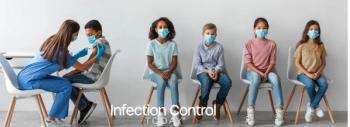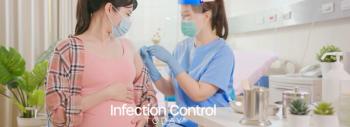
How Nurses Adjust to the Trauma of Taking on COVID-19
The nurses in the study “grew psychologically” under the pressure of coping with COVID-19. They reevaluated their values, and found motivation by being grateful for the support they received from family, friends and colleagues.
Ernest Hemingway described courage as “grace under pressure.” A study of the psychological challenges to-and changes in-nurses on the frontlines fighting COVID-19 uses the term “growth under pressure.” The 20 nurses in the study, when first assigned to COVID-19 patients, felt a lot of anxiety brought on by fatigue, discomfort (often caused by the wearing of personal protective equipment (PPE) for hours), and helplessness caused by heavy workloads and fear of either catching the disease, or becoming an asymptomatic carrier and bringing it home to their loved ones.
But then, according to the
Investigators wrote that the “nurses adopted avoidance, isolation, speculation, humor, self-consciousness, and other psychological defenses to psychologically adjust to the situation.”
This, in turn, led to “growth under pressure, which included increased affection and gratefulness, development of professional responsibility, and self-reflection.”
Investigators concluded that psychological counseling for nurses caring for COVID-19 would be most effective if given early on in the experience. They also cited the importance of establishing “early support systems, such as adequate supplies of protective materials, reasonable allocation of human resources, elderly and infant care services for nurses’ families, pre-job training, and interpersonal interaction among nurses to facilitate nurses’ adaptation to the antiepidemic tasks,” the study states
The study, which used the Colaizzi’s phenomenological method to qualitatively analyze the psychological experiences of the nurses, was conducted in China at the First Affiliated Hospital of Henan University of Science and Technology from January 20 to February 10, 2020 by investigators who worked for that institution. It’s a small study and just how much of it can be extrapolated to other healthcare institutions in other countries at other times during the pandemic can’t be known because “the medical system and culture of different countries varies,” the authors admit.
However, the novelty of COVID-19 makes reports from the frontlines valuable they argued, and the study contains tables of quotes that the nurses gave to the psychologist who conducted the interviews.
The psychologist asked three main questions: What do you feel about the COVID-19 patients? How do you cope with those feelings? What lessons have your learned from the pandemic?
What the investigators described as “subquestions” were also asked. They included: How did you feel when you agreed to the assignment? Were there any changes in your life? If so, how did you cope with changes on the job and in your life? What are your thoughts and feelings about fighting COVID-19?
Here are some examples of how the nurses answered, under the general themes.
Significant amount of negative feelings in the beginning.
· “After putting on protective clothing, nursing duties are awkward to carry out. Protective clothing needs to be worn for 8 hours or more without drinking water and eating food and urinating was done with adult diapers.”
· “After all, it is a new disease and the patient’s condition is unpredictable. I am always worried about what to do if the patient’s condition deteriorates in the next second.”
· “I am the only child and my mother cries every day and fears that I will be infected, and I worry more about them...”
Coping and self-care styles.
· “We encourage each other. It doesn’t feel like I’m fighting alone, I’m not afraid.”
· “In fact, the chance of medical staff infection is very low and the protection of negative pressure wards is better than other departments.”
· “When using diapers, I tell myself you’re young enough to become a baby [laughs].”
· “I write a diary and sometimes write letters.”
· “The progressive breathing relaxation method recommended by my colleague is good, I often use it.”
Growth under pressure.
· “After work I find the sky is blue and everything is beautiful.”
· “I used to work to earn a salary, but now it feels like a responsibility.”
· “I never thought I could be so strong.”
· “After entering the negative pressure ward, I saw that both the patient and the doctor were protected. So, I felt safe and relieved.”
· “Every time I take care of the patients, they will take the initiative to put on a mask. I feel particularly safe in my heart. After treatment, they will keep saying ‘thank you’ and it feels good.”
· “Patients are very cooperative with our work. Although some patients have emotions due to illness, they show great respect to us.”
· “My family calls or sends WeChat greetings every day, and I feel very happy.”
Some of the study’s findings will sound all too familiar to nurses dealing with COVID-19 patients throughout the world. For instance, a lot of anxiety felt by the nurses at first had to do with having to reuse PPE and wear that PPE for long shifts. The nurses’ fear peaked when they entered the negative pressure ward for the first time. “They were mainly concerned about the unknown conditions of the patients, severe emergencies, and the patients’ psychological state,” the study stated.
Investigators compared their findings to other studies that show how epidemics can traumatize caregivers. The nurses in their study “grew psychologically” under the pressure of coping with COVID-19. They reevaluated their values, and found motivation by being grateful for the support they received from family, friends and colleagues.
“The sense of responsibility brought by professional ethics in an epidemic, encouraged nurses to actively participate in antiepidemic tasks and boosted their professional identity and pride…,” the study states. “Our finding of the existence of positive emotions in our nurses such as confidence, calmness, relaxation, and happiness, which simultaneously or gradually appeared with negative emotions, was in contrast to the results several studies that describe only the presence of a large amount of negative emotions during outbreak stress.”
Newsletter
Stay prepared and protected with Infection Control Today's newsletter, delivering essential updates, best practices, and expert insights for infection preventionists.




